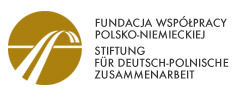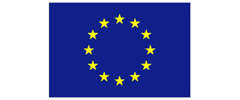From Parma to Haifa: how far have we gotten?
Environment and health progress review in the WHO European Region
28.04.2015 |WHO Regional Office for Europe
Despite substantial progress in environment and health in the last few decades, a quarter of all diseases and deaths in Europe are attributable to exposure to environmental agents. Four out of five Europeans die from cardiovascular and respiratory diseases, type 2 diabetes and cancer. While ageing populations and unhealthy lifestyles are the main factors, new stronger evidence links these health outcomes to air pollution, climate change, chemical and physical agents.
At the 2010 Fifth Ministerial Conference on Environment and Health in Parma, Italy, countries in the WHO European Region committed to achieve by 2015 or 2020 five time-bound targets to improve people’s health in the environment in which they live. After five years, countries reviewed their progress in Haifa, Israel. WECF was part of the Ecoforum delegation, representing environmental organisations from the European Region.
A new WHO report Improving environment and health in Europe: how far have we gotten? describes the key findings of the assessment.
Target 1 – Provide safe water and sanitation to all children by 2020
Over 90% of citizens have access to improved water and sanitation facilities nowadays. However, 67 million people still lack access to basic sanitation and 100 million lack piped drinking-water on their premises.
Progress has been slow, and setbacks in access to safe water have occurred in eastern Europe, the Caucasus and central Asia where over 70% of the rural population live in homes without access to piped water on premises. As a consequence, 10 deaths a day from diarrhoea are due to unsafe water and poor sanitation and hygiene in the Region.
The Protocol on Water and Health is the pan-European policy instrument to improve health through more equitable access to safe water and sanitation services. With the accession of Bosnia and Herzegovina and Serbia after 2010, the Protocol has 26 Parties, representing 60% of the European population.
Target 2 – Create healthy and safe environments for children in their daily life by 2020
Forty per cent fewer children under the age of 14 years have died from unintentional injuries and road traffic accidents in 2000–2011. However, progress has been lower in low- and middle-income countries (34% reduction) compared to high-income countries (60% reduction).
Over 60% of the 35 Member States that participated in a survey introduced new policies on children’s environments and preventing injuries since the 2010 Parma Ministerial Conference. Yet, significant policy gaps remain to make the built environment more conducive to integrate physical activity into daily life.
The Transport, Health and Environment Pan-European Programme (THE PEP) is the international policy platform supporting this target. The Paris Declaration: City in Motion – People First!, adopted at the Fourth High-level Meeting on Transport, Health and Environment in Paris, France in 2014, renews commitments for more green, healthy mobility and less noise and air pollution, through a new partnership promoting cycling.
Target 3 – Provide children with healthy indoor environments that are free from tobacco smoke by 2015
Most countries in the Region restrict smoking in public areas to reduce children’s exposure to tobacco smoke. The exposure of children to tobacco smoke, both before and after birth, has been linked to health effects such as sudden infant death syndrome (SIDS), respiratory problems, cancer and impaired mental and social development.
Progress to free indoor environments from tobacco smoke was significant for schools and universities in the Region. In 2012, 38 countries banned smoking in schools, and 32 countries banned smoking in universities. But the target has yet to be met.
While most countries have comprehensive policies to provide healthy environments to pupils, implementing and enforcing these policies is a common challenge. Further efforts are needed to provide adequate ventilation in classrooms, prevent dampness and mould growth, reduce emissions of indoor chemicals and improve enforcement of existing smoking bans.
Target 4 – Safeguard children’s environments from toxic chemicals by 2015
About 140 000 chemicals are in use today, twice as many as a decade ago. More exposure and health effects are expected in countries with poor or no regulatory mechanisms and resources.
- A big step to protect children from health effects of mercury was the 2013 adoption of the Minamata Convention on Mercury; the estimated economic benefits only in the European Union are expected to be up to €9 billion a year.
- While exposure to most persistent organic pollutants has declined steadily, their presence in breast milk remains a concern.
A 2013 WHO survey identified the following gaps in European countries:
- only half report setting up programmes to reduce or eliminate chemical risks to children;
- less than half address priority carcinogens, mutagens and reproductive toxicants and endocrine-disrupting chemicals; and
- less than half have a legal basis for prohibiting the use of dangerous chemicals in products destined for children.
Target 5 – Develop policies to eliminate asbestos-related diseases by 2015
Asbestos is one of the most widespread environmental health hazards in the Region. The majority of countries have banned the use of asbestos, but almost one third still use it and a few are asbestos producers. Evidence shows the toxicity of all forms of asbestos (press release to be published on 30 April 2015).
Implement the European Regional Framework for Action to protect health from climate change
Climate change can cause 250 000 more deaths per year globally before 2050. In the Region, the main health risks are heat waves and floods, together with changes in the distribution of vector-borne diseases and allergic disorders.
In Europe between 1998 and 2009, 213 floods caused over 1100 deaths and €52 billion losses. The 2014 floods in the Balkans affected over 2.5 million people. A 2014 WHO study projects an annual increase of heat-related deaths up to 27 000 by 2050 for people aged over 65 years, if no action is taken.
Thirty-two countries examined their vulnerability to climate change related health threats, and 24 developed adaptation plans. Vulnerability to intense heat was common across all countries. While most countries in the Region took action to reduce greenhouse gas emissions, few capitalize on the health co-benefits of energy, transport, building or agriculture measures that are an immediate gain of climate change policies.
Download the full factsheet on progress from Parma to Haifa here.
More information
Improving environment and health in Europe: how far have we gotten? http://www.euro.who.int/en/mtr-report
Mid-term Review site http://www.euro.who.int/ehp-mtr
Related News
Policy Dialogue On Sustainable Development, Health and Social justice in Tirana, Albania
Linking the Ostrava Declaration of the European Environment and Health Process to SDGs Agenda 2030
10.03.2018
UN Summit on Eradicating Poverty and Promoting Prosperity in a Changing World
8 days of advocacy and activism for a gender just future within the SDG process. WECF recently attended the UN summit on the Sustainable Development Goals (High Level Political Forum, HLPF) in New York and reports back on their experiences.
10.08.2017
Youth at the heart of ECO Forum's participation in Ostrava
Reporting back on WHO’s regional conference on environment and health, where WECF (and its ECO Forum delegation of 23 youths and seniors) was to advocate for a healthy future
23.06.2017
"Let's Ensure a Healthy Future" - WECF side event at WHO 6th Ministerial Conference
Protecting children from exposure to harmful chemicals to avoid irreversible damage.
14.06.2017
Midterm review of environment and health progress in the European Region
From 28 to 30 April WECF was part of the Ecoforum delegation, representing environmental organisations from the European Region, participating at the mid-term review meeting of the WHO European Environment and Health Process in Haifa, Israel
15.05.2015







































